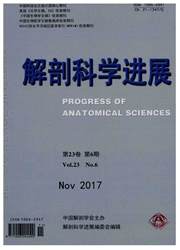

 中文摘要:
中文摘要:
淋巴管新生在胚胎发育、外伤修复、炎症转归、肿瘤转移和器官移植后排斥反应等方面起着重要作用。除淋巴管内皮细胞外,淋巴管内皮祖细胞参与淋巴管新生。淋巴管内皮祖细胞表达CD34、CD133和VEGFR-3,在趋化因子作用下由骨髓动员入外周血,继而迁入局部组织。经VEGF-C等生长因子诱导向淋巴管内皮细胞分化,参与淋巴管新生。VEGF-C/VEGFR-3信号途径在LEPCs分化和淋巴管新生方面起着关键调控作用,故VEGF-C和VEGFR-3可作为基因治疗的靶点,调节淋巴管内皮细胞向内皮细胞分化,从而促进或抑制淋巴管新生。阐明内皮祖细胞在淋巴新生方面的作用机制对于探讨肿瘤淋巴转移和器官移植后存活等具有重要意义。
 英文摘要:
英文摘要:
Lymphangiogenesis has important effects on embryonic development,wounding repair,inflammation turnover,tumor lymphatic metastasis and immunological rejection after organ transplantation.Besides endothelial cells of the existing lymphatic vessels,lymphatic endothelial progenitor cells(LEPCs)contribute to lymphangiogenesis and express CD34,CD133 and VEGFR-3.The cells in bone marrow are mobilized into peripheral blood by chemotatic factors and then home to local tissue.Under induction of growth factors such as VEGF-C,LEPCs differentiate into lymphatic endothelial cells and participate in lymphangiogenesis.VEGF-C/VEGFR-3 signaling pathway plays a key mediating role in LEPC differentiation and lymphangiogenesis.Therefore,VEGF-C and VEGFR-3 may be targets for gene therapy.With interfering LEPC differentiation,lymphangiogenesis may be promoted or inhibited.It implicates in exploring tumor lymphatic metastasis and survival of the transplanted organs to elucidate effects of LEPCs on lymphangiogenesis.
 同期刊论文项目
同期刊论文项目
 同项目期刊论文
同项目期刊论文
 期刊信息
期刊信息
